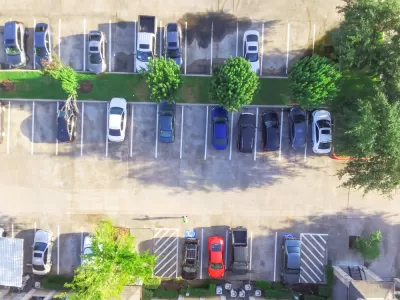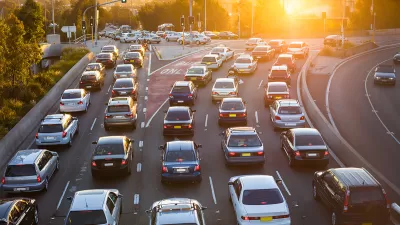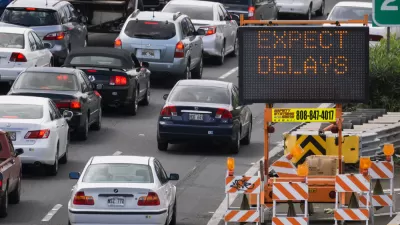New research published in the Urban Studies journal does the difficult work of connecting the dots between parking and driving.

A forthcoming academic paper offers a "breakthrough" conclusion, according to an article by Michael Andersen: "Bigger parking lots make us drive more."
"What Do Residential Lotteries Show Us About Transportation Choices?" was written by Adam Millard-Ball, Jeremy West, Nazanin Rezaeib, and Garima Desaib (from the Los Angeles and Santa Cruz representatives of the University of California system) and published by the Urban Studies journal. The methodology of the study required identifying and studying a randomized sample of human behavior, which the researchers found in, as explained by Andersen, "the free, site-specific lotteries that San Francisco uses to select who gets to live in the price-regulated homes of new apartment and condo buildings."
"After surveying the auto ownership and basic transportation habits of the residents of 2,654 homes in 197 projects built since 2002, the authors […] found that projects with more on-site parking induce more auto ownership," according to Andersen. More specifically, the paper reads as follows: "Buildings with at least one parking space per unit (as required by zoning codes in most U.S. cities, and in San Francisco until circa 2010) have more than twice the car ownership rate of buildings that have no parking…"
The research did not identify a correlation between parking supply and employment, but did identify a connection between parking and more riving, less transit use, and less walking.
After describing the methodology and findings of the research, Andersen also digs into the consequences of the findings, namely, that the research provides evidence that changing the way U.S. cities are built would result in the behavior changes that will lower greenhouse gas emissions to ensure the future of the planet.
FULL STORY: Verified: More Parking Puts More Cars on the Road

Alabama: Trump Terminates Settlements for Black Communities Harmed By Raw Sewage
Trump deemed the landmark civil rights agreement “illegal DEI and environmental justice policy.”

Study: Maui’s Plan to Convert Vacation Rentals to Long-Term Housing Could Cause Nearly $1 Billion Economic Loss
The plan would reduce visitor accommodation by 25% resulting in 1,900 jobs lost.

Planetizen Federal Action Tracker
A weekly monitor of how Trump’s orders and actions are impacting planners and planning in America.

Waymo Gets Permission to Map SF’s Market Street
If allowed to operate on the traffic-restricted street, Waymo’s autonomous taxis would have a leg up over ride-hailing competitors — and counter the city’s efforts to grow bike and pedestrian on the thoroughfare.

Parklet Symposium Highlights the Success of Shared Spaces
Parklets got a boost during the Covid-19 pandemic, when the concept was translated to outdoor dining programs that offered restaurants a lifeline during the shutdown.

Federal Homelessness Agency Places Entire Staff on Leave
The U.S. Interagency Council on Homelessness is the only federal agency dedicated to preventing and ending homelessness.
Urban Design for Planners 1: Software Tools
This six-course series explores essential urban design concepts using open source software and equips planners with the tools they need to participate fully in the urban design process.
Planning for Universal Design
Learn the tools for implementing Universal Design in planning regulations.
Caltrans
Smith Gee Studio
Institute for Housing and Urban Development Studies (IHS)
City of Grandview
Harvard GSD Executive Education
Toledo-Lucas County Plan Commissions
Salt Lake City
NYU Wagner Graduate School of Public Service





























